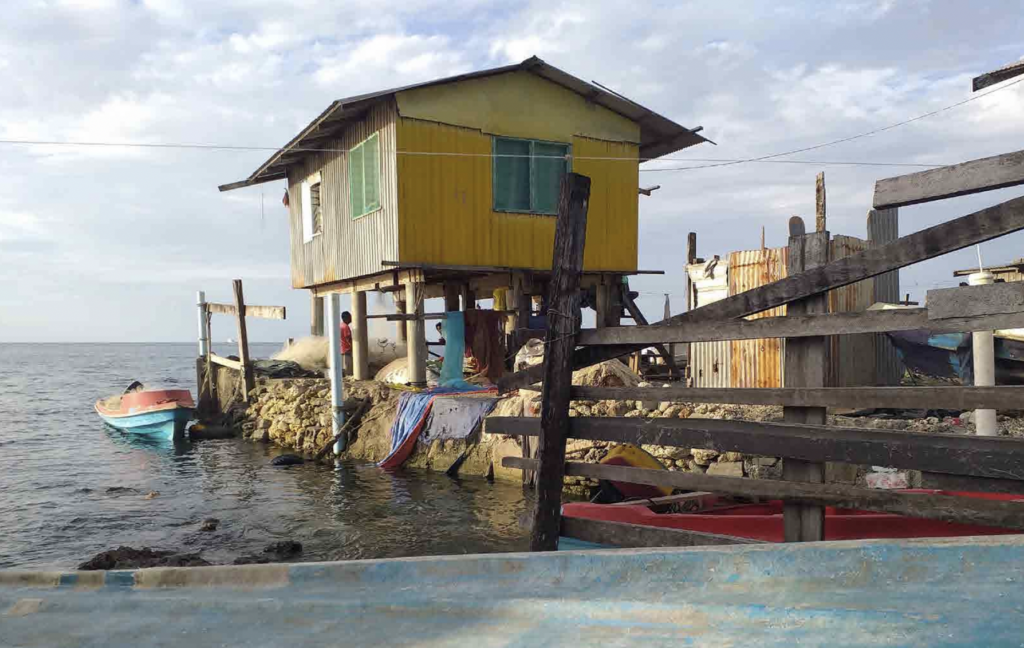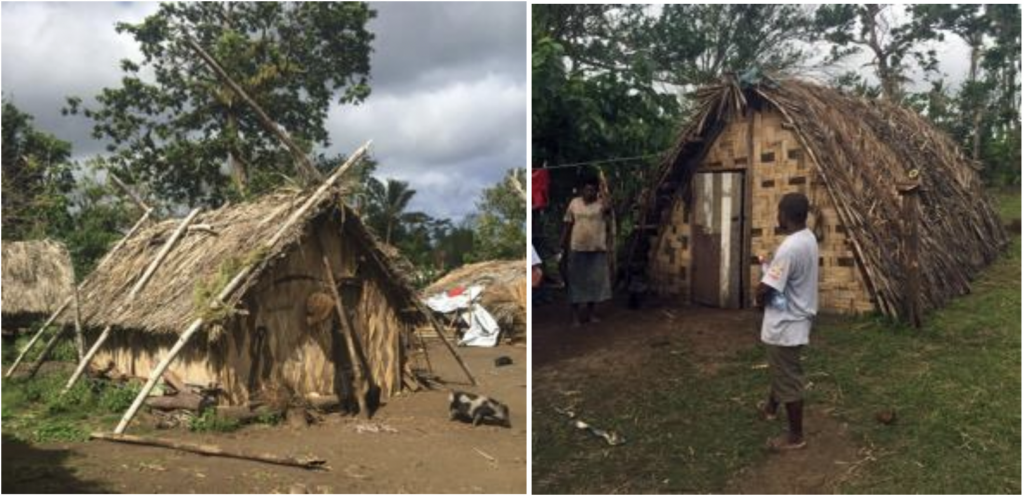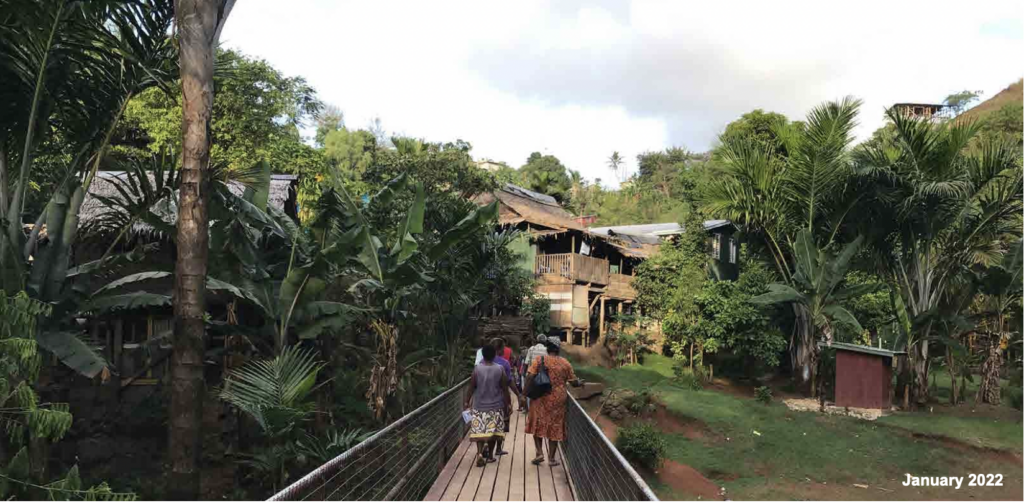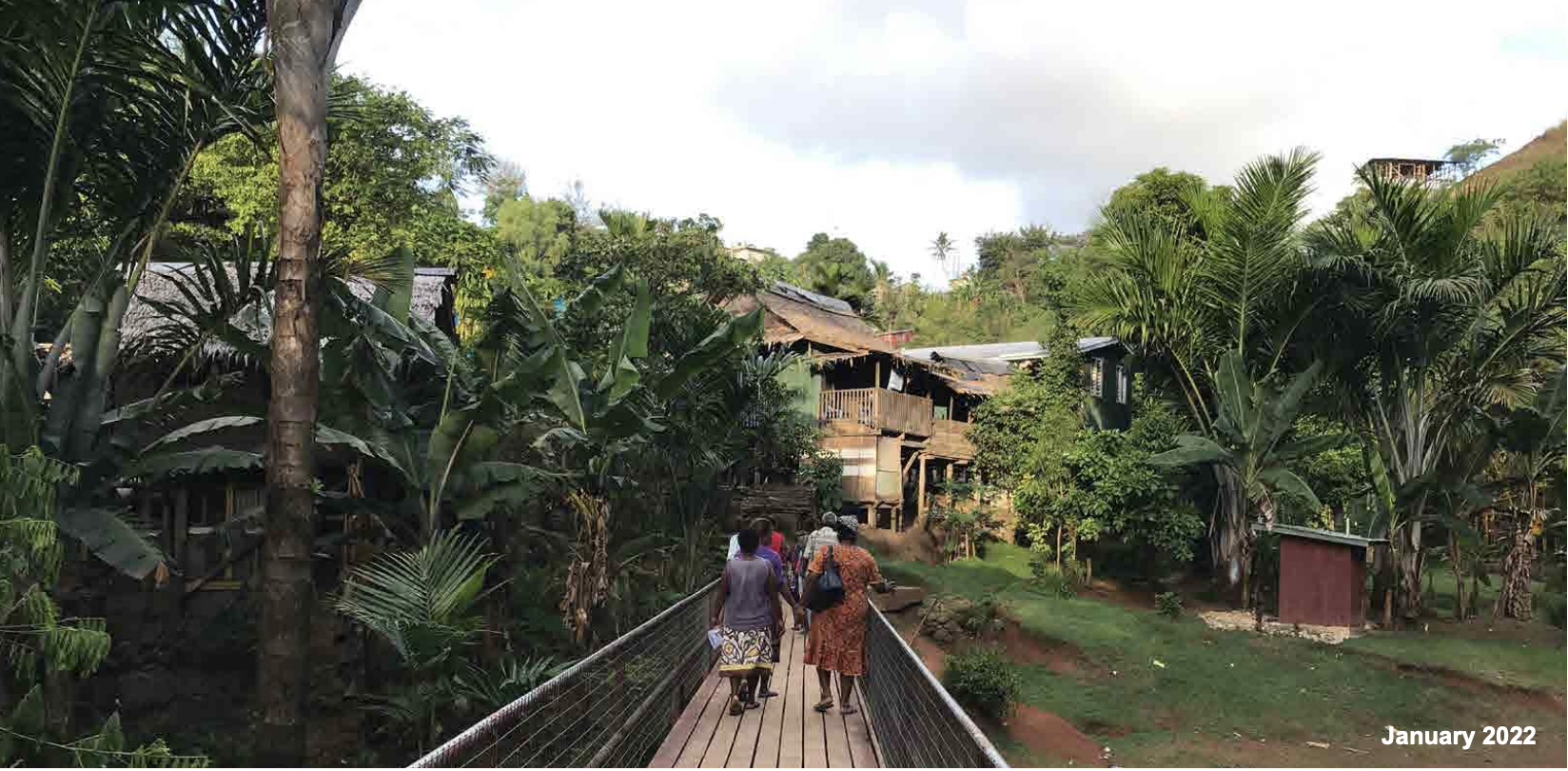Over the last few years Habitat for Humanity Australia has been working with the Australian Humanitarian Partnership across the Pacific to establish Disaster Ready Emergency Handbooks. Our key projects took place in Fiji, Vanuatu and the Solomon Islands and involved extensive research and community consultation. The result was the establishment of country-specific guidelines to ensure these countries are prepared for a climate emergency and able to successfully manage disaster recovery and co-ordinate the delivery of shelter response activities during disasters.

Our Work in Fiji
In 2016, 30,369 homes were destroyed or damaged by Tropical Cyclone ‘Winston.’
The cyclone tore through the islands destroying livelihoods, homes, and cultural sites. This was one of the biggest weather disasters in Fiji in recent times however it is only one of many, both natural and climate change induced to hit Fiji.
The Fiji Shelter handbook alongside our on the ground, work have given particular focus to inclusivity and accessibility; prioritising community consultation, gender and disability equality within the building process and ensuring dignity and respect is maintained in immediate disaster relief evacuation centres. One of our key achievements was developing the Build Back Safer Training Program.
Community Consultation
Community consultation was a key part of developing the Shelter Guide with nine formal and informal communities surveyed in urban and rural locations across Fiji’s two main islands, as well as several remote outer islands. Overall, 377 people from these diverse communities shared their experiences, preferences and traditional knowledge of shelter and disasters in Fiji.
To ensure accessibility and gender concerns around shelter were well captured, a four-day disability-inclusive shelter and a five-day workshops were conducted with respective organisations and experts.
Our Five Key Focus Areas
National Co-ordination; including community dynamics and cultural protocols
Preparedness; with guidelines on building stronger structures and Participatory Approach for Safe Shelter Awareness (PASSA) to address issues such as safety, hazards and vulnerabilities including for women, those with disabilities or in the LGBTQI+ communities.
Emergency Response; involving the immediate distribution of prepositioned emergency shelter kits, toolkits, tarpaulins and essential household items including blankets, solar lamps, kitchen sets, sleeping mats, etc. and activation of evacuation centres. Ensuring there is respectful sanitation and hygiene facilities is a major factor in this as well as accessible medical support.
Recovery; Recognising that most Fijian communities have the capability to build back resilient homes, the recovery stage focuses on strengthen these homes to resist against disasters as well as ensuring they are disability accessible. Engaging women and other vulnerable groups in the building process is a key factor of Recovery.
Logistics; to plan, implement and control the efficient, cost-effective flow and storage of goods and materials, as well as advise on the transport of supplies, from point of origin to the point of consumption for the purpose of alleviating the suffering of vulnerable people.
To read more about the work we are doing please click here;
Our Work in Vanuatu
Much like the rest of the Pacific, Vanuatu is no stranger to adverse weather events from earthquakes to volcanic eruptions to the ongoing effects of Climate Change. Recently two tropical cyclones in 2015 and 2020 as well as volcanic eruptions in 2018 have all caused major damage to the country’s housing stock, economy, and many peoples livelihoods. Disaster Recovery can take years.

As part of the Disaster Response Shelter Project in Vanuatu following Tropical Cyclone Harold; a coordinated, locally-led process to address emergency needs has provided housing and water, sanitation and hygiene infrastructure repairs.
Through extensive community consultation we established the key issues faced by people in Vanuatu when disaster hits and put together guidelines for future organisations to ensure the needs of the community are met.
Our five key focus areas were Shelter and Disability Inclusion, Shelter and Gender, Preparedness, Emergency Response and Recovery.
Habitat worked closely with the community, the government and with other organisations to ensure inclusivity and accessibility was prioritised across all five areas. Consultation was crucial to bringing awareness about the need for inclusive shelter programming and to document the importance of shelter in disaster preparedness, response, and recovery.
A total of 323 people from 13 islands were consulted for their input including 198 women and 5 people living with disabilities. From here, Habitat developed programs and trainings to solve the main challenges faced, for example involving women in the design and construction process to ensure housing suits their daily needs; this is something that otherwise may not be accounted for in a traditionally male dominated labour-force.
“Shelter is a place to hide from natural disasters and survive as a human being, a place that gives one peace of mind and comfort.”
– Community Member
To read more about the work we are doing please click here;
Community Voices for Inclusive Shelter Programming in Vanuatu
Technical guidelines for shelter preparedness and response to natural hazards in Vanuatu
Our Work in the Solomon Islands
In 2020, Tropical Cyclone Yasa hit the Solomon Islands. The Tropical Cyclone Yasa Disaster Response Shelter Project led by Habitat for Humanity involved the distribution of Emergency Shelter Kits, along with emergency repairs of housing, water and sanitation infrastructure, including installation of emergency toilets, and delivery of transitional shelter.

The Inclusive and Disaster Resilient Shelter Guide for the Solomon Islands was also established to provide critical insight into the lives of those living in urban informal settlements and the realities of residents who are often first responders.
One of the key messages from a local perspective was the abundance of carpentry skills in the community, along with knowledge of traditional practice. Most needed was the sharing of technical expertise and examples of best practice building techniques to allow people to strengthen their own houses against disasters.
Habitat for Humanity worked with the local community to provide guidance on key construction features, along with training in principles and techniques for shelter resilience and to establish a key training program; ‘Train the Trainer’ using existing training organizations and in collaboration with the Solomon Islands government.
‘Tie Down from Bottom Up’ was the central message to emerge from this research. This means the key structural features to be targeted for increased shelter resilience starts from the ground up with anchored footings; then ties, straps, and bracings to secure the structural frame, as well as the use of sustainable local materials rather than imported ones.
When there is a big wind, some people will try to tie the rope; or nail timber on the roof or put canvas up. Windows can be broken during really strong winds and wind and rain can blow into the house”
– A member of a fishing community.
To read more about the work we are doing please click here;


